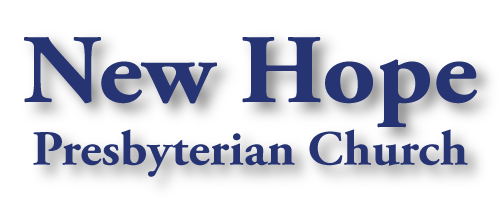Two Questions That Change Everything
At the center of every philosophy or religion are two questions that change everything:
- What is people’s biggest, most abiding problem?
- How will this problem ever get solved?
The Christian worldview is very clear and very simple about the first: the answer is sin.
The Bible directs us to look inside ourselves and not outside. Scripture documents and describes the chaos that ensues when we try to set up our little claustrophobic kingdoms of one, rather than living for the kingdom of God.
Most significantly, the Word of God requires each of us to accept that, at the most practical of levels, sin distorts our thoughts, desires, choices, actions, and words.
And there’s absolutely nothing we can do within our own power to solve this problem.
At the same time, the same Bible presents us with the narrative that there’s hope and help to be found. Admitting sin sounds like a death sentence, but it’s not. We cannot solve our greatest problem, but there’s a place where the solution can be found.
The only hope for sinners is divine forgiveness. To put it even more forcefully, the only hope for sinners is that the One who’s in charge of the universe is a God of forgiveness.
The bottom line is this: if God is unwilling to forgive, we are doomed. But he’s willing!
The story that winds its way through the pages of the Bible is a story of God’s active willingness to forgive. He controls the forces of nature and directs human history to bring the universe to the point where the Final Priest—the Sacrificial Lamb, the Messiah, the Lord Jesus Christ—comes to earth, lives a perfect life, and gives himself as a sacrifice for our sins.
All of this is done so that our most profound problem—sin—will find its only solution—forgiveness—without God compromising his character, his plan, or his law in any way.
The content of the Bible is the worst of news (you are a sinner) and the best of news (God is willing to forgive). It’s only when you’re ready to admit the worst that you then open yourself up to what’s best.
All of this means that you and I don’t have to live in denial and avoidance. We don’t have to play self-excusing logic games with ourselves. We don’t have to give ourselves to systems of penance and self-atonement. We don’t have to point the finger of blame at others. We don’t have to perform our way into God’s favor.
Rather, we can come to him again and again just as we are—flawed, broken, and unclean—and know that he’ll never turn away anyone who comes to him and says, “I have sinned; won’t you in your grace forgive?”
There’s no sin too great, there’s no act too heinous, and there’s no person beyond hope. There’s no requirement of age, gender, ethnicity, location, or position. The offer is open and free.
He asks just one thing: that you admit your sin and seek what can be found only in him—forgiveness.
Arise, My Soul, Arise
I love the words of the classic hymn, “Arise, My Soul, Arise” by Charles Wesley. Take a few extra moments to worship your way through its verses today:
“Arise, my soul, arise; shake off thy guilty fears;
The bleeding sacrifice in my behalf appears:
Before the throne my surety stands, . . .
My name is written on His hands.
He ever lives above, for me to intercede;
His all redeeming love, His precious blood, to plead:
His blood atoned for all our race, . . .
And sprinkles now the throne of grace.
Five bleeding wounds He bears; received on Calvary;
They pour effectual prayers; they strongly plead for me:
“Forgive him, O forgive,” they cry, . . .
“Nor let that ransomed sinner die!”
The Father hears Him pray, His dear anointed One; He cannot turn away, the presence of His
His Spirit answers to the blood, . . .
And tells me I am born of God.
My God is reconciled; His pardoning voice I hear;
He owns me for His child; I can no longer fear:
With confidence I now draw nigh . . .
And “Father, Abba, Father,” cry.
God bless
Paul David Tripp
Reflection Questions
- What are some other answers to the question, “What is people’s biggest, most abiding problem?” that culture tries to sell you, and that you are tempted to believe?
- What are some alternative “saviors” in life that we seek? That is, where (apart from the Gospel) are we tempted to look for help and hope?
- Why is it so hard to admit that we have a profound moral problem that we cannot solve? How have you tried to make a case for your righteousness this week?
- What freedom and joy have you found in the past when you rest in the grace of Christ alone? Where do you need to experience more of this freedom moving forward?
Want to learn more about New Hope Church? Click here.

